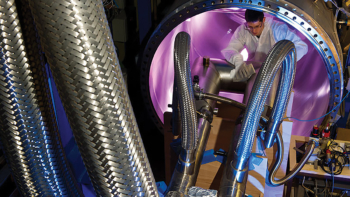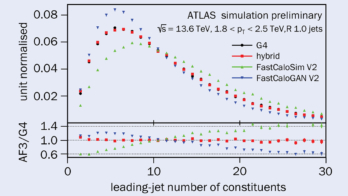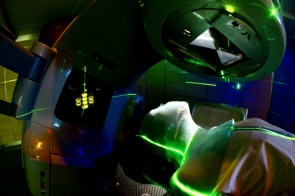
The inaugural Sparks! Serendipity Forum attracted 49 leading computer scientists, policymakers and related experts to CERN from 17 to 18 September for a multidisciplinary science-innovation forum. In this first edition, participants discussed a range of ethical and technical issues related to artificial intelligence (AI), which has deep and developing importance for high-energy physics and its societal applications. The structure of the discussions was designed to stimulate interactions between AI specialists, scientists, philosophers, ethicists and other professionals with an interest in the subject, leading to new insights, dialogue and collaboration between participants.
World-leading cognitive psychologist Daniel Kahneman opened the public part of the event by discussing errors in human decision making, and their impact on AI. He explained that human decision making will always have bias, and therefore be “noisy” in his definition, and asked whether AI could be the solution, pointing out that AI algorithms might not be able to cope with the complexity of decisions that humans have to make. Others speculated as to whether AI could ever achieve the reproducibility of human cognition – and if the focus should shift from searching for a “missing link” to considering how AI research is actually conducted by making the process more regulated and transparent.
Introspective AI
Participants discussed both the advantages and challenges associated with designing introspective AI, which is capable of examining its own processes and could be beneficial in making predictions about the future. Participants also questioned, however, whether we should be trying to make AI more self-aware and human-like. Neuroscientist Ed Boyden explored introspection through the lens of neural pathways, and asked whether we can design introspective AI before we understand introspection in brains. Following the introspection theme, philosopher Luisa Damiano addressed the reality versus fiction of “social-embodied” AI – the idea of robots interacting with us in our physical world – arguing that such a possibility would require careful ethical considerations.
AI is already a powerful, and growing, tool for particle physics
Many participants advocated developing so-called “strong” AI technology that can solve problems it has not come across before, in line with specific and targeted goals. Computer scientist Max Welling explored the potential for AI to exceed human intelligence, and suggested that AI can potentially be as creative as humans, although further research is required.
On the subject of ethics, Anja Kaspersen (former director of the UN Office for Disarmament Affairs) asked: who makes the rules? Linking to military, humanitarian and technological affairs, she considered how our experience in dealing with nuclear weapons could help us deal with the development of AI. She said that AI is prone to ethics washing: the process of creating an illusory sense that ethical issues are being appropriately addressed when they are not. Participants agreed that we should seek to avoid polarising the community when considering risks associated with current and future AI, and suggested a more open approach to deal with the challenges faced by AI today and tomorrow. Skype co-founder Jann Tallin identified AI as one of the most worrying existential risks facing society today; the fact that machines do not consider whether their decisions are unethical demands that we consider the constraints of the AI design space within the realm of decision making.
Fruits of labour
The initial outcomes of the Sparks! Serendipity Forum are being written up as a CERN Yellow Report, and at least one paper will be submitted to the journal Machine Learning Science and Technology. Time will tell what other fruits of the serendipitous interactions at Sparks! will bring. One thing is certain, however, AI is already a powerful, and growing, tool for particle physics. Without it, the LHC experiments’ analyses would have been much more tortuous, as discussed by Jennifer Ngadiuba and Maurizio Pierini (CERN Courier September/October 2021 p31)
Future editions of the Sparks! Serendipity Forum will tackle different themes in science and innovation that are relevant to CERN’s research. The 2022 event will be built around future health technologies, including the many accelerator, detector and simulation technologies that are offshoots of high-energy-physics research.





